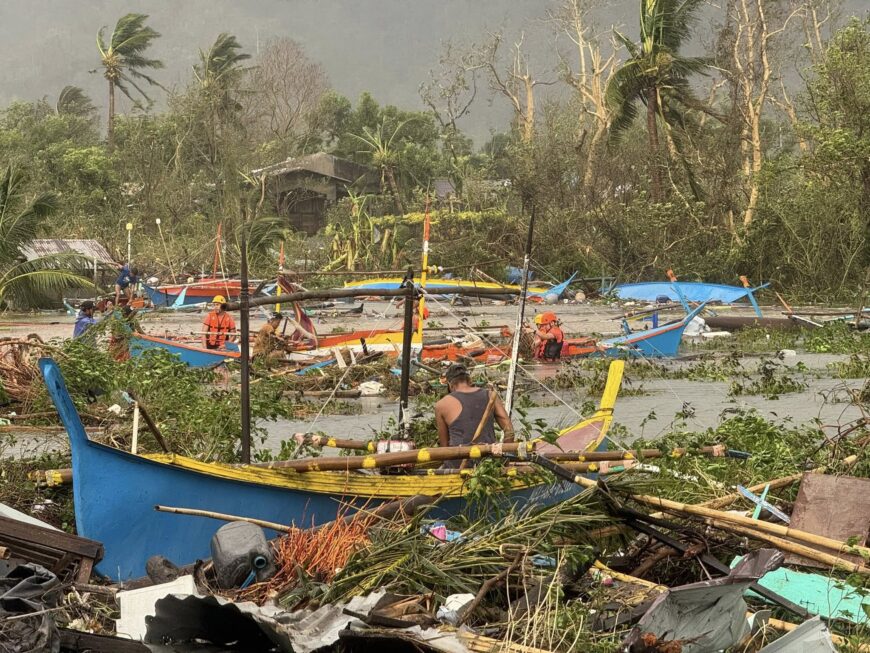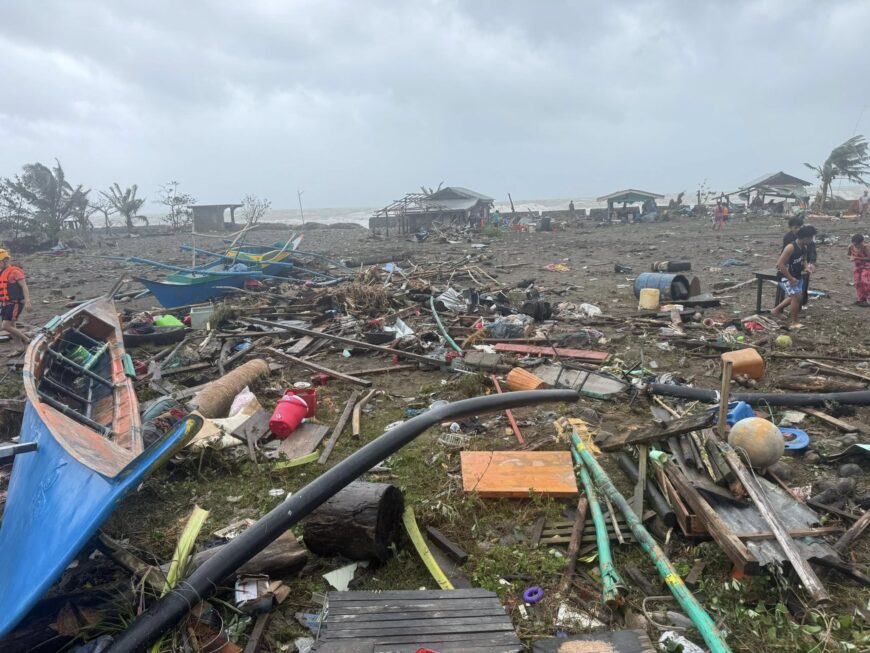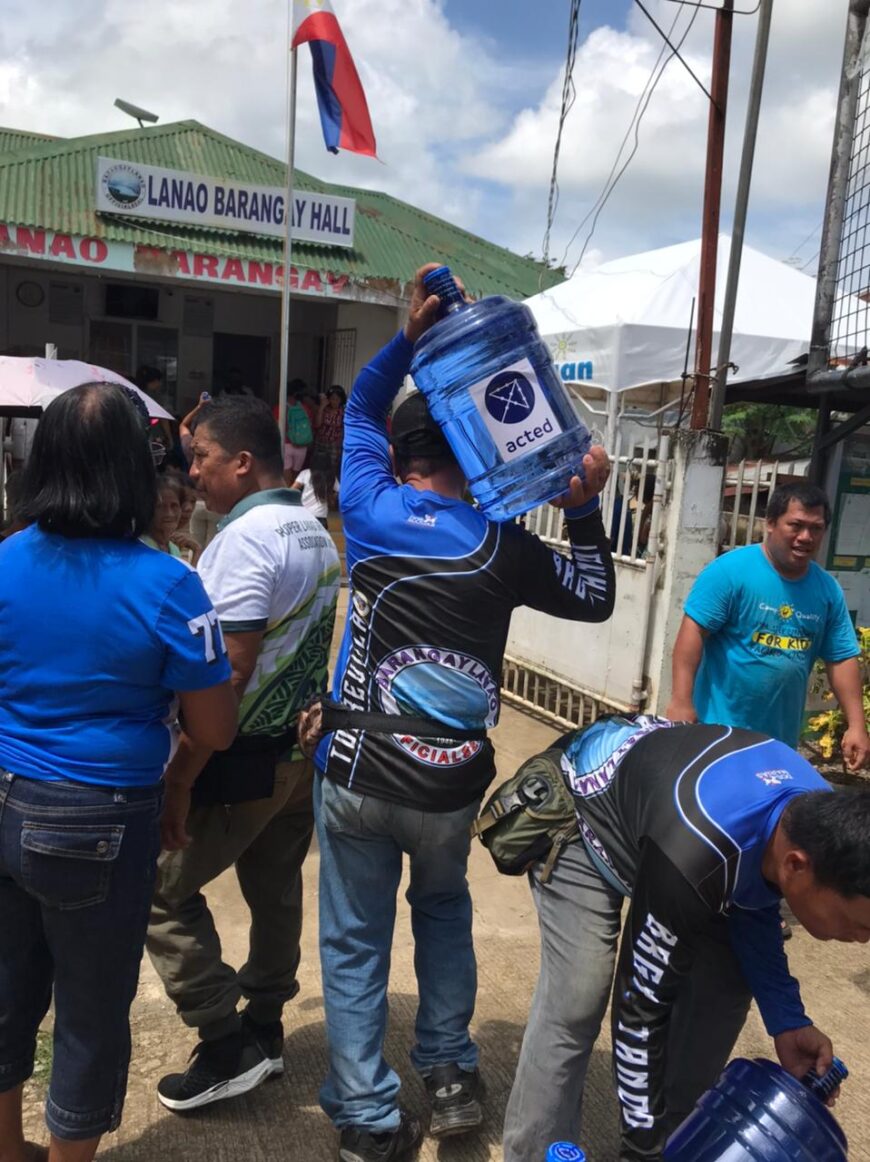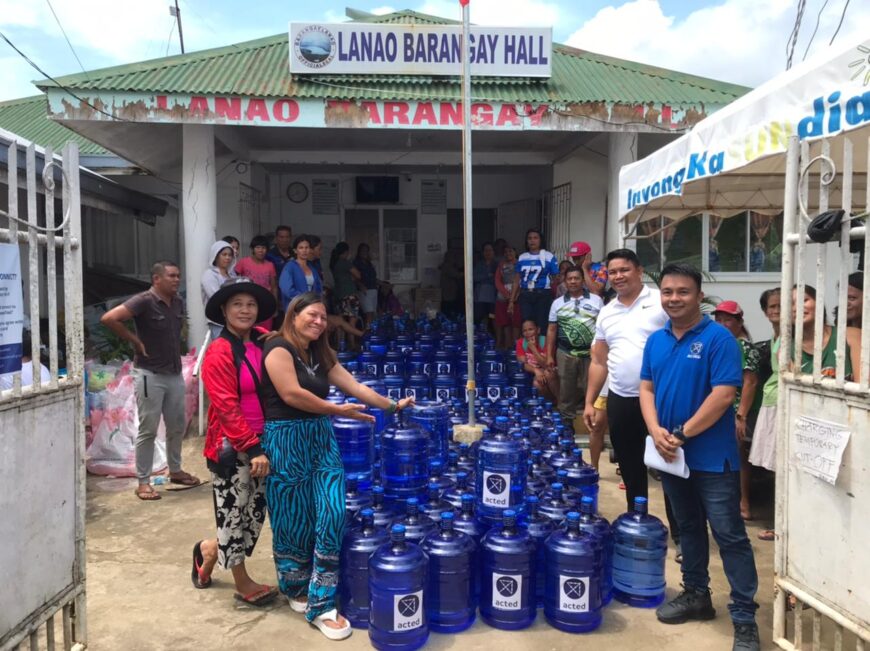On 30th September 2025, a Mw 6.9 earthquake struck 19km northeast near Bogo City in northern Cebu and was also strongly felt across the Visayas and parts of Luzon and Mindanao. The earthquake was followed by 3,685 aftershocks ranging from magnitude 1.4 to 5.1, and affected 366,360 people (80,595 families) mainly in region 7 of the country. In the immediate days after the earthquake Acted was able to activate its emergency response team to conduct assessments and distribute water kits to those most affected.

However, since then the country has been subject to further successive shocks stretching capacities and heightening pre-existing vulnerabilities.
On 2 November 2025, Typhoon Kalmaegi (local name Tino) swept across the country leading to widespread flooding affecting approximately 4.1 million people, including communities in northern Cebu still recovering from the devastating earthquake. Tent previously established for earthquake survivors were evacuated due to rising floodwaters, displacing communities again. Strong winds and flood waters further damaged homes and community infrastructure already requiring repairs after the earthquake.


Acted is appealing for support
- Safe water and sanitation access through the repair and reconstruction of water supply and sanitation facilities at the household and community level
- Emergency shelter support, including durable tarpaulins and repair kits.
- Hygiene and protection, with hygiene kits, solar lights, and safe sanitation solutions.
- Psychosocial support to help families cope with trauma and displacement.
- Multi-purpose cash for households to meet their most urgent needs in a dignified manner
